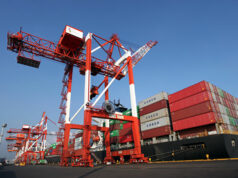Rising wages said eroding Asia’s competitiveness
RISING minimum wages across Northeast and Southeast Asia will “gradually” erode the competitiveness of economies in these regions, Fitch Solutions Group Ltd said in a May 3 note e-mailed to journalists on Monday.
Noting that “availability of large pools of low-cost labor has positioned East and Southeast Asia as the premier hub for labor-intensive business operations, particularly in manufacturing” — supporting rapid economic growth in countries like China, Malaysia and Thailand over the past five decades — the note said “the rapid region-wide increase in the minimum wage will undermine this global competitiveness.”
Fitch Solutions — affiliate of Fitch Ratings, Inc. — noted that these regions’ average minimum wage was just around 63% of the global average in 2015, “but it has risen to nearly 82% in 2019 and is projected to catch up with the global average or… overtake it by the end of the next 10-year period.”
Hence, “[f]rom a labor cost perspective, several East and South East Asian countries will lose their global competitiveness over the next decade due to the rapid rise in minimum wages across the region as businesses face increasingly higher costs of production.”
It added that “authorities in some countries, including Cambodia, Vietnam and the Philippines, are succumbing to worker and union demands in order to prevent possible outbreaks of social unrest that could cause political instability.” The Trade Union Congress of the Philippines — the country’s biggest trade group — on April 29 filed a fresh petition for an across-the-board wage increase for Metro Manila’s private sector workers amounting to P710, arguing that the P537 upper end of the capital’s P500-537 daily minimum wage, which resulted from a P25 increase that took effect on Nov. 22 last year, translates to a nominal take-home pay of P416.53 after government-mandated deductions and a real value of P354.80 when adjusted to inflation.
For American Chamber of Commerce of the Philippines, Inc. Senior Adviser John D. Forbes, Philippine labor costs have not risen “as fast as in some neighboring countries.”
“Minimum wages have gone up in line with inflation but peso depreciation has improved competitiveness of exported goods and services,” he said in a mobile phone message on Monday when asked for comment.
For European Chamber of Commerce of the Philippines President Nabil Francis, “[t]he Philippines remains an attractive investment destination” due to “its young, dynamic, English-literate work force.”
“In order to develop a more productive workforce that is regionally competitive, the country should prioritize the continued improvement of the quality of its working population,” he said in an e-mail. — Gillian M. Cortez



